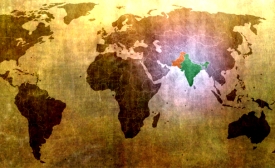cinema
The landmark films of Indian cinema that have enthralled generations of viewers over the past century will now travel across the world. As part of the Indian film industry's centennial celebrations, the government has envisaged an ambitious strategy to showcase the country's cinematic legacy by organising film festivals in major cities the world over.


The USC Center on Public Diplomacy, USC Gould School of Law's International Human Rights Clinic, and the USC School of Cinematic Arts invited students to attend a special screening and conversation of the film, "
Recently China has been ramping up its efforts at soft power. Last July Xinhua announced that it would launch a 24 hour English language channel and in 2009 China Central Television (CCTV) launched an Arabic channel. Even the private sector is getting into the act and Blue Ocean Network, China's first privately-owned English language TV network targeted at overseas audiences was launched in 2009.

PDiN Monitor Editorial Staff
Sherine B. Walton, Editor-in-Chief
Naomi Leight, Managing Editor
PDiN Contributing Researchers
Taleen Ananian
Paul Rockower
Di Wu
Rob Ashgar on the potential of cultural diplomacy to ease the India-Pakistan conflict.
Vladimir Putin is obsessed with cinema’s potential to sway hearts and minds. Over the past several years, Russia’s paramount leader has been tightening the screws on his country’s film industry. What is most remarkable about Putin’s move is not his power grab per se, Radio Free Europe’s anxiety-laden reportage in late December notwithstanding.
In the aftermath of the Beijing Olympics, there's been much discussion about an increase in China's soft power, not least by Joseph Nye, the originator of the concept. [Link] Nye and others (this writer included) have evaluated China's film industry and U.S.-Chinese co-productions as a strategic asset for the Middle Kingdom. I was discussing the subject recently with a U.S.







